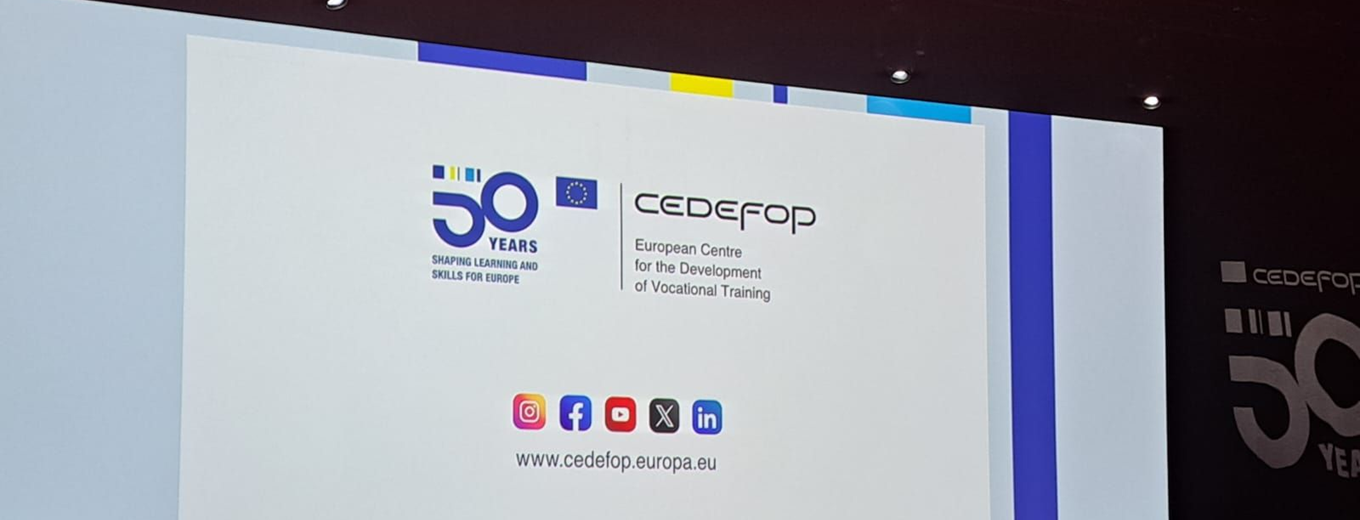CEDEFOP celebrates fifty years as Europe’s VET hub, tackling skills gaps and driving lifelong learning amid digital, green, and labour market transitions.
In 1975, member states of the European Economic Community agreed on the need to improve professional education across Europe. This led to the establishment of the European Centre for the Development of Vocational Training (CEDEFOP) in Berlin, tasked with researching and guiding the evolution of professional training systems. Half a decade later, CEDEFOP is now headquartered in Thessaloniki, Greece, and serves as Europe’s leading source of skills intelligence and a central hub for professional and vocational education and training (PVET) knowledge. CEDEFOP’s 50th anniversary conference, held in Brussels on 27 May 2025, came at a particularly pivotal moment. It coincided with the recent launch of the European Commission’s new Union of Skills framework, an ambitious agenda placing unprecedented emphasis on vocational education, as well as up- and reskilling (see SwissCore article).
The high-level event assembled a range of international stakeholders, including policymakers, social partners and practitioners tasked with implementing PVET policies. Across multiple sessions, panel members and keynote speakers reflected on CEDEFOP’s past successes and future challenges. Many of these challenges stem from the twin green and digital transitions as well as from acute labour shortages affecting key sectors in Europe. These developments underscore the urgent need for a cohesive European approach to reinforce PVET systems. As CEDEFOP Management Board Member Mario Patuzzi succinctly noted in his opening remarks, the agency’s central challenge is “not only to react to change, but to anticipate and shape it.”
A critical tool in this effort is skills intelligence. CEDEFOP, supported by over a hundred experts, offers a plethora of tools for comparing PVET systems and forecasting skills demand and supply. During the event, three CEDEFOP experts presented how Europe can foster innovation and productivity amid persistent skills shortages. They introduced CEDEFOP’s new Talent Gap Index, which, for the first time, combines data from their Skills Forecast and their Skills and Jobs Survey to rank occupations by recruitment difficulty. This index uniquely reflects the employer’s perspective on how well education and training systems align with labour market needs. Emphasis was also put on providing a human-centric, lifelong and life-wide skills development ecosystem. Putting the learner front and centre in a skills ecosystem was also at the heart of discussions at SwissCore’s recent Education Briefing earlier this month (see Swisscore article). The life-wide learning perspective particularly emphasises the need to increasingly validate and recognise informal learning which occurs outside education and training systems.
Panel discussions featuring representatives from trade unions, employers, social partners, and civil society highlighted the urgency of expanding access to upskilling and reskilling opportunities across Europe. At the same time, many agreed that improvements in the VET teaching profession are vital. Recommendations included raising the status of teaching staff, improving job security, and offering competitive salaries. CEDEFOP’s forthcoming VET teacher survey is expected to provide valuable insights into these issues. On the learner side, several speakers noted the need to rebrand apprenticeships and VET pathways, given the limited interest among young people in pursuing vocational careers. Panellists emphasised the importance of promoting the benefits and opportunities associated with VET, especially since many of Europe’s most critical labour shortages are in professions that do not require higher education, but strong vocational training.
The European Commission’s active participation at the event re-affirmed CEDEFOP’s crucial role in implementing the Union of Skills. The agency’s expertise in providing skills intelligence will be crucial in supporting the new Skills Observatory, as well as in shaping the forthcoming VET strategy, expected in 2026. Lastly, this milestone conference highlighted the agency’s legacy of a strong network of stakeholders involved in shaping Europe’s skills ecosystems. Activating this community will be key in reaching the Commission’s ambitious skills targets until 2030.

